South Africa's Marikana fallout: Winners and losers
- Published
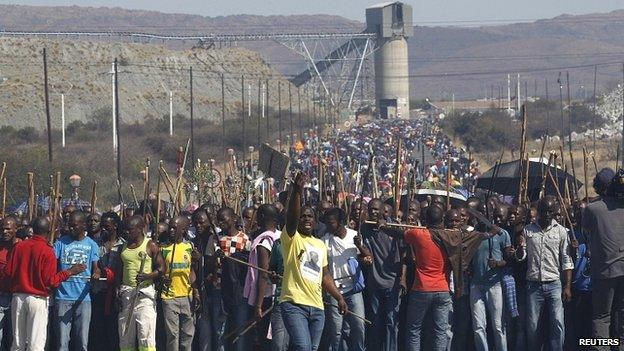
This may not be the end of South Africa's industrial unrest, but as workers at the Marikana platinum mine return to work it seems like a good opportunity to rate the winners and losers so far.
The Winners:
Pessimism and alarmism
Plenty of people - and not just generalisation-loving journalists - have taken a look at the anarchy at Marikana and seen it as further proof that South Africa is on a downwards slide to Zimbabwe circa 2008.
I do not buy the doomsday scenario.
But as the commentator and businessman Moeletsi Mbeki put it to me: "South Africa is a powder keg. Serious foreign investment stopped some time ago."
Brand South Africa - at least in some quarters - has just taken a big hit.
Violent, illegal strike action
"Violence works," said one jubilant worker to me at Marikana on Wednesday.
"When we just talk, we get only peanuts."
The miners may richly deserve their pay rise, but as the National Union of Mineworkers (NUM) Secretary General Frans Baleni put it: "The normal bargaining processes have been compromised.
"It does suggest that unprotected action, an element of anarchy, can be easily rewarded."
A provocative precedent has been set.
Civil Society
It was heartening to see the South African Council of Churches step into the centre of the Marikana crisis, with Bishop Jo Seoka taking a lead role in mediation efforts.
Hopefully it will not need to become a pattern in future wage negotiations, but with trust in the unions, the government and the police taking a big hit, the country's energetic but often marginalised activists and community structures have an important role to play.
Firebrand populism
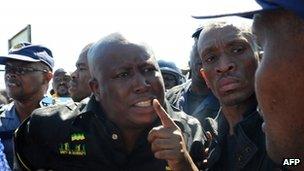
Julius Malema has become an eloquent performer
Former African National Congress (ANC) Youth League leader Julius Malema has had a good month.
He has used the unrest partly to wage a cynical, self-serving campaign against his former mentor, President Jacob Zuma, but also to highlight the yawning gap between South Africa's limousine and champagne elites and the increasingly voiceless masses.
You may condemn Mr Malema's opportunism, and question his radical political prescriptions, but he has become an electrifying and eloquent performer.
The Losers:
Trade Unions
Locked into a formal alliance with the ruling ANC, South Africa's unions were always likely to face a crisis of credibility at some point.
That moment may have come.
For years the unions were criticised in some quarters for protecting their own workers at the expense of the country's vast army of jobless.
But now even those workers are turning on their bosses - accusing them of being too close to capital, and government.
"Even wearing an NUM [National Union of Mineworkers] T-shirt you can be killed," a striking miner told me at Marikana after a shop steward had been murdered.
Will the unions change their ways?
President Zuma
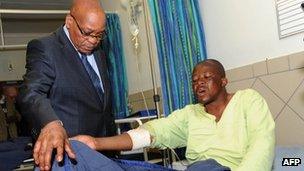
Jacob Zuma was widely criticised for his initial response to the violence
If the president fails to win a second term in office, then Marikana will certainly be one of the reasons why.
His distant, tone-deaf performance in the early stages of the strike has been widely criticised.
But he remains a shrewd political operator and cannot be written off yet.
Investors
Lonmin's profit margins have just taken a big hit.
Others may follow.
But if South Africa remains a fractious, frustrating place to do business, then the companies - local and foreign - also need to do a much better job of explaining their side of the argument.
- Published18 September 2012
- Published12 September 2012
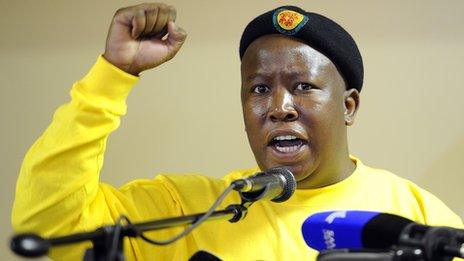
- Published8 September 2012
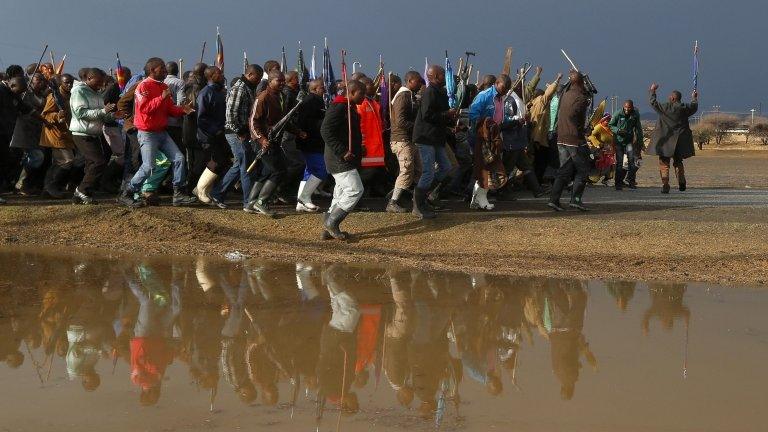
- Published23 August 2012
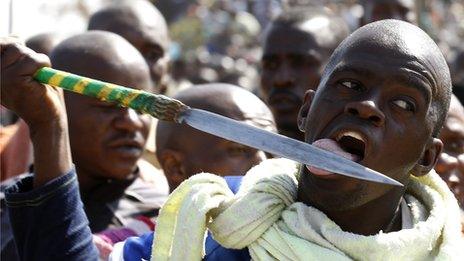
- Published9 July 2024

